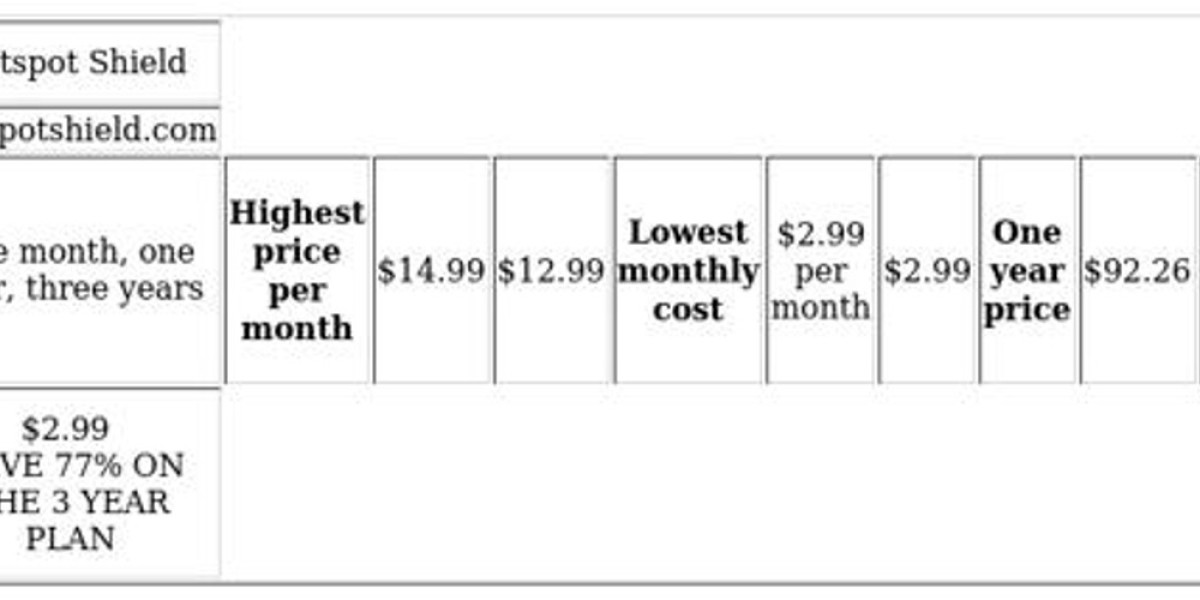Hola vs Hotspot Shield Overview
Both Hola and Hotspot Shield provide a mix of free and paid VPN services, making them part of the "freemium" category. While their free versions are accessible, they come with significant limitations aimed at encouraging users to upgrade to premium plans for enhanced features.
The fundamental difference between these two services lies in their operational models. Hola operates on a peer-to-peer (P2P) network, where it partially utilizes servers to facilitate connections. On the other hand, Hotspot Shield functions as a traditional VPN, relying entirely on its own server network.
In this comparison, we will delve into the key similarities and differences between Hola and Hotspot Shield, starting with an overview of their commercial plans.
It's worth noting that both Hotspot Shield and Comparitech are owned by Pango.
When considering HolaVPN, there are two primary plans available: Premium and Ultra. These plans come with distinct features. The Ultra plan stands out by providing access to approximately 50% more servers, delivering faster speeds, and allowing for a greater number of simultaneous device connections (20 devices compared to 10). Additionally, the Ultra plan supports 4K streaming, whereas the Premium plan is limited to HD video quality.
To achieve the lowest monthly rates, both HolaVPN and Hotspot Shield require a three-year commitment. The lowest rate for Hola’s Premium plan is $2.99 per month. However, this price point does not offer the same level of service as Hotspot Shield at the same cost. For the same $2.99, Hotspot Shield provides access to about 80% more servers, the fastest speeds, and 4K streaming capabilities.
In terms of comparing the Ultra plan from Hola with Hotspot Shield, the Ultra plan starts at $7.99 per month. While Hotspot Shield’s pricing is generally more competitive, Hola’s Ultra plan is more than twice as expensive. This makes Hotspot Shield a more cost-effective option for those seeking similar or even superior features.
HolaVPN vs Hotspot Shield: Comparing Two Popular VPN Services
When evaluating VPN services, device compatibility and additional features often play crucial roles in the decision-making process. Let's examine how HolaVPN and Hotspot Shield stack up against each other in these areas.
Device Compatibility and Connections
Hotspot Shield offers support for mainstream operating systems, but goes further by providing dedicated applications for Linux and Chrome. Users are limited to five concurrent connections, which aligns with industry standards.
HolaVPN takes a different approach by allowing up to ten simultaneous connections with their premium subscription. This generous allowance makes it particularly suitable for households with numerous devices or large families. HolaVPN also boasts compatibility with an extensive range of devices.
Distinctive Features
HolaVPN has developed its own Chromium-based browser that exclusively works with their VPN service. While this concept is interesting, it's worth noting that this browser hasn't undergone independent evaluation by Comparitech or other reputable reviewers. Unlike privacy-focused browsers such as Brave or Vivaldi, HolaVPN's browser does track user activity.
Hotspot Shield differentiates itself by including additional security features like malware protection. Their package also comes with 1Password, a highly-rated password management solution, plus a spam call blocking feature. These valuable extras explain why Hotspot Shield's pricing tends to be slightly higher than market averages.
Final Considerations
Both VPN providers excel in system compatibility and offer unique supplementary features. Hotspot Shield's additional tools may provide more practical value for most users, but your final choice should depend on your specific device ecosystem and which extra features would benefit you most.
Streaming compatibility remains a critical battleground for modern VPN services
While HolaVPN's distributed network architecture theoretically offers a clever workaround
by routing traffic through residential IP addresses rather than centralized servers
real-world performance often fails to match expectations
Geolocked platforms still frequently detect and block these connections
despite the supposed anonymity of peer-to-peer IP sharing
Hotspot Shield demonstrates unexpected prowess in this ongoing cat-and-mouse game
maintaining consistent access to region-restricted content libraries
The service's ability to regularly refresh its server infrastructure
and implement advanced obfuscation techniques gives it an edge
where Hola's decentralized model occasionally struggles with reliability
Both solutions employ distinct approaches to bypass digital borders
but streaming enthusiasts may find Hotspot's conventional servers
surprisingly more effective than Hola's crowdsourced network
for maintaining uninterrupted access to premium video content
The evolving nature of VPN detection algorithms continues to reshape
what constitutes an effective solution for bypassing geo-restrictions
Navigating Internet Restrictions: VPN Performance in Restrictive Regimes
In countries with stringent internet censorship, particularly China with its sophisticated "Great Firewall," VPN effectiveness varies significantly.
HolaVPN encounters complete blockage in China, rendering it non-functional for users attempting to bypass national internet restrictions.
Meanwhile, Hotspot Shield presents a more complex situation. While previously reliable in China, its current performance has become inconsistent. The company acknowledges these challenges and suggests users try accessing their service through different devices as a potential workaround. Their technical team continues to address these limitations, though they caution users to expect ongoing intermittent service.
It's worth noting that VPN functionality in restrictive environments represents a constantly shifting landscape. Services that operate effectively today may suddenly become blocked tomorrow as censorship technologies evolve.
Recent comprehensive testing by Comparitech analyst Paul Bischoff evaluated multiple VPNs in China, revealing that even functioning services often suffer from significant speed degradation. In this analysis, Hotspot Shield ranked fifth among VPNs operating in the Chinese market.
While neither service demonstrates exceptional performance in highly restrictive regions at present, Hotspot Shield maintains a slight advantage through its occasional functionality and ongoing efforts to circumvent sophisticated censorship systems.
Both HolaVPN and Hotspot Shield offer straightforward app downloads and usage. Their setup processes are guided by automatic wizards, making the installation quick and hassle-free. The design of their user interfaces is neat and intuitive, ensuring a smooth experience for all users. Whether you're using the desktop or mobile versions, the similarity in layout and functionality means you can switch between them effortlessly.
While Hola offers a variety of advanced settings that may not be necessary for all users, this abundance of options can actually be seen as a positive. More choices mean greater flexibility and customization, which can enhance the overall user experience.
Users of both HolaVPN and Hotspot Shield generally report high satisfaction levels with minimal complaints. When it comes to the user interface, HolaVPN stands out for its simplicity. This can be a plus for those who appreciate a straightforward design, but it may feel limiting for users who prefer more customization and control.
In terms of setup wizards and overall user interfaces, neither HolaVPN nor Hotspot Shield has a clear edge. The preference is largely subjective and depends on individual tastes.
One notable drawback for both services is the lack of comprehensive support content on their websites. Neither offers many screenshots or how-to videos, which can make it challenging for users to find the information they need. In contrast, other VPNs like Surfshark provide extensive support pages with a wealth of visual aids, making them more user-friendly in this aspect.
Comparing VPN Services: A Deep Dive into HolaVPN and Hotspot Shield
When evaluating VPN providers, server network size and distribution are critical factors that impact performance and functionality. HolaVPN advertises an impressive 212 location points across the globe, exceeding the commonly recognized count of 195 countries worldwide. This discrepancy exists because HolaVPN includes territories like Guam that aren't sovereign nations but represent strategic connection points.
HolaVPN's marketing refers to "super powerful servers all around the globe," suggesting a traditional server infrastructure rather than its peer-to-peer network model. However, the company provides limited transparency regarding which locations utilize virtual versus physical servers.
In contrast, Hotspot Shield employs unique terminology around its server infrastructure. While the industry typically defines virtual servers as physical hardware in one location broadcasting IP addresses from another, Hotspot Shield applies this term differently to its entire network architecture. This creates some confusion when comparing services directly.
Virtual server technology itself isn't deceptive—it efficiently provides geographically diverse IP addresses. The ethical concern arises when providers imply physical presence where none exists, potentially disappointing users in remote regions expecting nearby servers for optimal speeds.
HolaVPN's peer-based approach theoretically enables access to IP addresses in virtually any country with members. However, this advantage diminishes when considering global internet infrastructure realities. Many regions, including rural America and developing nations, lack reliable broadband access. Even countries like Dominica, listed in HolaVPN's network, face infrastructure vulnerabilities from natural disasters despite having broadband service.
Quantitatively, Hotspot Shield maintains a substantial advantage with over three times more servers than HolaVPN's Premium tier and double the Ultra plan's capacity. Hotspot Shield offers city-level server selection across approximately 25 U.S. locations, while HolaVPN limits choices to country selection.
Performance testing reveals interesting patterns. Both services deliver comparable average speeds, but with dramatically different consistency profiles. HolaVPN shows extreme variability—sometimes outperforming competitors, other times struggling with basic webpage loading. Hotspot Shield delivers more predictable performance, though its claim of being "the fastest VPN" relies on outdated research predating newer, faster VPN protocols.
For users prioritizing consistent performance without manual optimization, Hotspot Shield represents the more reliable option. Those willing to experiment with different connection points might occasionally achieve faster speeds with HolaVPN, though its prohibition of torrenting limits potential applications for such high-speed connections.
Comparing Security Features: HolaVPN vs Hotspot Shield
Security transparency differs significantly between these two VPN providers. While Hotspot Shield (HSS) clearly outlines its security implementations, HolaVPN seems reluctant to disclose comprehensive details about its protective measures.
Hotspot Shield has recently enhanced its security portfolio, particularly for Android users who now benefit from a kill switch feature. This important security element automatically cuts your internet connection if the VPN drops, preventing accidental unprotected browsing. Unfortunately, iOS users still await this crucial functionality.
DNS protection represents another area where Hotspot Shield demonstrates strength. The service routes your connections through private DNS servers, successfully preventing DNS leaks during testing. This approach offers significantly better privacy than the default ISP-provided DNS servers that can potentially track your online activities.
In stark contrast, HolaVPN's free tier appears to offer minimal security benefits. The company could significantly improve its market position by either implementing stronger security protocols or clearly articulating the security advantages available through paid subscriptions.
When examining additional security features, Hotspot Shield includes malware protection and bundles a 1Password subscription—adding valuable security layers. While not as comprehensive as some premium competitors offering ad blocking, tracker prevention, and specialized obfuscation techniques, Hotspot Shield provides adequate security for most users.
HolaVPN faces a critical decision point: either upgrade its security infrastructure or better communicate any existing security benefits that remain undisclosed to potential customers.
VPN Privacy Comparison: Hola vs Hotspot
Privacy Profiles: Examining HolaVPN and Hotspot Shield
When considering your online privacy, understanding the data practices of VPN providers is crucial. Hotspot Shield, based in the United States, operates under U.S. jurisdiction but maintains a no-logs policy, effectively limiting what information could be shared with authorities if requested.
In contrast, HolaVPN operates from Israel, which might seem advantageous from a jurisdictional perspective. However, this service collects extensive user data, significantly compromising privacy despite their assurance against selling this information.
Payment options reveal another dimension of privacy considerations between these services. Neither provider accepts cryptocurrency payments, which would allow for anonymous transactions. While credit card payments offer consumer protections for disputes or refund requests, they create a clear connection to your identity.
Hotspot Shield implements standard privacy measures that serve basic security needs, though their no-logs policy lacks third-party verification. Some competing VPN services offer more robust anonymity features for users with heightened privacy concerns.
For HolaVPN users, particularly those on paid plans costing $36+ annually, the extensive tracking and data collection practices represent a significant privacy compromise that seems misaligned with the service's premium pricing structure.
HolaVPN’s infrastructure operates on a peer-driven model for free users,
leveraging other devices as connection points rather than traditional servers.
Upgrading to paid tiers unlocks access to dedicated server networks,
offering either shared IPs or device-specific IPs from peers.
This hybrid approach enables bypassing VPN detection systems
by mimicking organic residential connections in restricted regions.
Hotspot Shield prioritizes collective anonymity through IP pooling,
masking individual traffic within groups sharing server addresses.
This method complicates user tracking but lacks Hola’s
flexibility for accessing location-specific content.
Static IP functionality remains irrelevant for standard browsing,
primarily serving specialized use cases like remote access hosting.
Modern network security relies heavily on NAT firewall integration,
which neither service explicitly supports in their configurations.
Router-level protection remains separate from these VPN solutions,
highlighting potential gaps in layered security approaches.
Comparing HolaVPN and Hotspot Shield: What You Need to Know
When choosing between HolaVPN and Hotspot Shield, understanding their differences in customer support, security features, and overall value is essential for making an informed decision.
Customer Support Experience
HolaVPN offers limited support options, with users required to complete a single online form for all assistance needs. This creates delays when seeking immediate help for technical issues or refund requests - a notable drawback for paid VPN users.
Hotspot Shield provides more comprehensive support channels and generally responds to inquiries within an hour, though response times can occasionally extend longer. Their more robust support infrastructure represents a significant advantage over Hola's minimalist approach.
User Satisfaction and Online Reputation
Both services maintain impressive TrustPilot ratings, with Hotspot Shield scoring slightly higher at 4.8/5 compared to Hola's 4.5/5. However, these ratings should be viewed cautiously as they include reviews from both free and paid users, potentially inflating satisfaction scores as free users often have lower expectations.
Website Usability and Self-Help Resources
Neither service excels in website design or navigation. Both lack easily accessible search functionality on their homepages, though Hotspot Shield's support section is more prominently displayed than Hola's buried links.
Hotspot Shield offers more comprehensive self-help content, while Hola primarily provides basic FAQs and setup guides. Both services include helpful screenshot-based tutorials, but neither offers video guides, and their search tools frequently return irrelevant results.
Free vs. Paid Service Differences
Hola's free version requires users to share their bandwidth through a peer-to-peer network (limited to 100MB daily), creating significant security vulnerabilities. Their paid plans remove bandwidth sharing requirements and add features like faster speeds and more simultaneous connections, but don't meaningfully improve security or privacy.
Hotspot Shield's free version maintains basic security features while limiting users to a single server location and displaying advertisements. Their premium plan removes ads, adds multiple server options, and includes valuable extras like password management and anti-phishing protection.
Security and Privacy Concerns
Hola presents serious security risks, particularly in its free version. The service doesn't encrypt data, tracks browsing history, and collects personal information. The bandwidth-sharing model potentially exposes users to legal liability if others use their connection for illegal activities.
Hotspot Shield offers stronger security fundamentals with no-logs policies and proper encryption, even in its free version. While it displays advertisements in the free tier, it doesn't track or sell browsing data.
Specialized Use Cases
For streaming content, both services work well, though Hotspot Shield's free version has reportedly restricted streaming capabilities. Hola's extensive peer network provides unparalleled global coverage for accessing geo-restricted content, but at significant security costs.
Hotspot Shield permits torrenting while Hola prohibits it. Hotspot Shield has also shown continuous improvement under new ownership, while Hola has faced controversies including temporary removal from Google Play.
Value Proposition
While both services offer premium plans at above-average prices, Hotspot Shield provides better value with stronger security features, a longer money-back guarantee (45 days vs. 30), and additional privacy tools. Hola's primary advantage lies in its extensive global peer network, but this comes with substantial security trade-offs.
For users prioritizing security and privacy alongside performance, Hotspot Shield's commercial plan clearly outperforms all of Hola's offerings, providing better protection, reliability, and overall service quality.When it comes to choosing between HolaVPN and Hotspot Shield, there are several key factors to consider. These include unblocking capabilities, security measures, privacy policies, ease of use, and overall value.
Unblocking Capabilities:
Both HolaVPN and Hotspot Shield aim to bypass geo-restrictions, allowing users to access content that might be blocked in their region. This is particularly useful for streaming services like Netflix, Amazon Prime Video, BBC iPlayer, and Disney+. However, the methods they use differ. HolaVPN leverages a peer-to-peer (P2P) network, which can make it appear as if you are accessing content from a different location without the need for traditional server-based unblocking. This often results in faster speeds and fewer detection issues. On the other hand, Hotspot Shield uses conventional servers, which can sometimes be detected and blocked by streaming services.
Security:
Security is a critical aspect of any VPN. Hotspot Shield offers robust encryption, secure connection protocols, a kill switch feature, and protection against data leaks. Additionally, it provides extra features like malware blocking. HolaVPN, while offering some security measures, does not match the level of security provided by Hotspot Shield, especially in its free plan. The P2P nature of HolaVPN can introduce additional risks, such as the potential for your bandwidth to be used by others.
Privacy:
Privacy policies vary significantly between the two. HolaVPN collects and retains personal data, including IP addresses, names, email addresses, and payment information. While it states that it does not rent or sell this information, it also makes clear that users are responsible for maintaining their own security. In contrast, Hotspot Shield has a more reassuring privacy policy, stating that it does not log personal data. However, its parent company, Pango, does collect usage data for analytics, security, and marketing purposes.
Ease of Use:
Both HolaVPN and Hotspot Shield have user-friendly apps available for major operating systems. HolaVPN offers apps for Xbox and PlayStation, which is a unique advantage. Hotspot Shield, on the other hand, provides pre-installed router software, making it easy to connect gaming devices. Both services offer good tech support and customer service, but the specific features and responsiveness may vary.
Value:
Value is determined by the features and performance you get for the price. Both HolaVPN and Hotspot Shield offer free tiers, but the paid plans provide more comprehensive features. HolaVPN’s free plan is popular due to its speed and unblocking capabilities, but it comes with privacy and security trade-offs. Hotspot Shield, while more expensive, offers better security and privacy, making it a more valuable option for those who prioritize these aspects.
Additional Features:
Hotspot Shield stands out with its malware protection and dedicated servers for gamers. HolaVPN, while lacking in these areas, offers a unique P2P model that can be advantageous for certain use cases.
In summary, the choice between HolaVPN and Hotspot Shield depends on your specific needs. If you prioritize speed and unblocking capabilities, HolaVPN might be the better option. However, if security and privacy are your top concerns, Hotspot Shield is the more reliable choice.
What is a Netflix VPN and How to Get One
Netflix VPN is a service that enables viewers to bypass geographical restrictions and access a wider range of shows and movies unavailable in their local region. By masking the user’s IP address and routing traffic through servers in other countries, a Netflix VPN unlocks international libraries, offering expanded streaming options. It also enhances privacy by encrypting data, making it a popular choice for both entertainment and security-conscious users.
Why Choose SafeShell as Your Netflix VPN?
If you're looking to Netflix unblocked and access region-restricted content, SafeShell VPN is a compelling choice. Its high-speed servers are specifically optimized for streaming, ensuring smooth playback in HD quality without lag or interruptions. The exclusive App Mode allows simultaneous access to multiple regional libraries, letting you switch between global Netflix catalogs effortlessly. With lightning-fast speeds and no bandwidth restrictions, buffering becomes a distant memory, whether you’re binge-watching shows or exploring niche international content.
SafeShell VPN doesn’t compromise on security while delivering versatility. The proprietary ShellGuard protocol encrypts your connection, shielding your streaming activities from surveillance. You can connect up to five devices at once—from smartphones to smart TVs—making it ideal for households or multitaskers. Combined with a flexible free trial that lets you test its features risk-free, SafeShell offers a balanced mix of performance, privacy, and cross-platform compatibility for Netflix enthusiasts worldwide.
A Step-by-Step Guide to Watch Netflix with SafeShell VPN
Accessing global Netflix content has never been easier with SafeShell Netflix VPN . Here's how to unlock worldwide entertainment:
- First, head to the SafeShell VPN website and select a subscription plan that matches your needs and budget
- Download the SafeShell VPN application for your specific device, whether it's Windows, macOS, iOS, or Android
- After installation, open the application and log in to your account
- For optimal Netflix streaming, select APP mode which is specifically optimized for video content
- Browse through the server list and connect to a location in your desired Netflix region (such as US for American content or UK for British shows)
- Once connected, simply open your Netflix application or visit the website, sign in, and enjoy your expanded library of region-specific content







